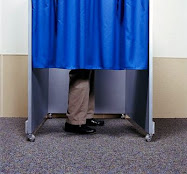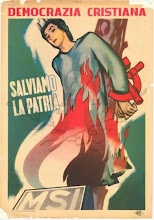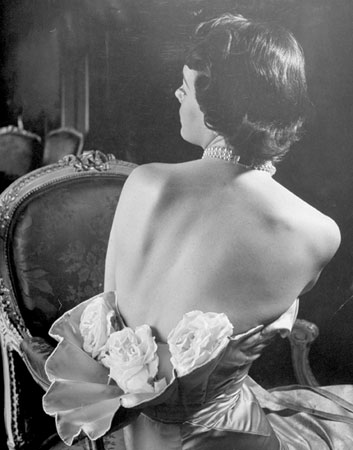
Readers of a certain age might remember the hit American television show Dynasty. It was originally conceived of as a rival to Dallas, with all those Texan oilmen types, but fast established itself as the most lavish and ludicrous of soap operas. The plot operated around Blake (John Forsythe), his wife Krystle (Linda Evans) and his former bride Alexis (Joan Collins) and others who constituted the rival Carrington and Colby families.
It had Americans under its spell in the mid 1980s, but the combination of ever more insane storylines and endless pay disputes among its performers undermined it. Eventually the plug was pulled in 1989 with a cliffhanger tale in which the stars were imperilled but viewers never found out what happened to them.
Dynasty was set in Denver, Colorado. By appropriate coincidence, the Democratic national convention will occur in the same city in late August. It is already evident that the contest between Barack Obama and Hillary Clinton will match anything created by fiction. Yet as the next few weeks will demonstrate, their competition will soon make Dynasty look like gritty social realism. This is a battle destined to become both extremely close and exceptionally combustible. It is hard to believe that Democrats will benefit from it.
The situation today is as follows. It takes 2,025 delegates to secure a majority and with it victory. About 80 per cent of these Democratic stalwarts will be chosen by voters through primaries and caucuses (“pledged delegates”), the remaining 20 per cent are party leaders of various sorts (“super delegates”). As of now, Mr Obama has won 1,414 pledged delegates to Mrs Clinton’s 1,246, which looks like an imposing lead.
In the states that chose their representatives by primaries (open ballots, much like local or general elections here), though, they are almost even. Mr Obama has a clear lead because of his success in caucuses (formal meetings in which the turnout is far lower than primaries and dominated by the most dedicated activists), which are arguably less legitimate indications of general support. Furthermore, two big states – Florida and Michigan – held primaries (in which Mrs Clinton did best) but have been barred from participating in the convention because they held them earlier than they had been instructed.
If this all sounds murky, it is about to become much, much worse. There are still a number of ballots to be held. The first is in Pennsylvania, which Mrs Clinton must, and probably will, win. Her rival then has a decent chance to hit back in North Carolina on May 6, where a large proportion of the electorate are African-Americans. Most of the remaining states (Indiana, West Virginia, Oregon, Kentucky, Puerto Rico, Montana and South Dakota) are likely to be inclined towards Mrs Clinton.
Such an outcome would result in three intriguing consequences.
The first is that there could almost be a tie over the number of pledged delegates. Mr Obama, thanks to the proportional representation rules his party uses, will probably have the greatest number in straightforward terms, but will be behind among those secured in primaries, rather than caucuses. Mrs Clinton would also be able to assert that, if the votes cast in Florida and Michigan were included, then she would be the stronger. In that case she would have finished more impressively than her opponent.
Secondly, the nomination will have to be settled by the super delegates. There are almost 800 of these and more than 300 have still to state their position. Not that it would matter if they had done so, because super delegates are allowed to change their minds right up until the official count at the convention. That being so, even if either Mr Obama or Mrs Clinton were to calculate that they were in second place when the very last primary had been completed in early June, they would have no good reason to abandon their campaigns.
Why not hang on and see if events were to turn up another version of the Reverend Jeremiah Wright, the pastor who has embarrassed Senator Obama recently, or produce an issue that could be exploited? In a further quirk, the convention is being held later than usual because the Democrats decided that it would “maximise momentum” to defer it.
Which means, thirdly, that it may be a convention like no other in recent decades. These occasions are normally totally controlled by the presumptive nominee and orchestrated to suit him (or her). They decide who will make the big speeches, impose the policies to be adopted, and the delegates confirm a vice-presidential selection that the candidate has announced to the world a while earlier. The convention is thus simply a vast rally.
That cannot occur if it is uncertain who the champion will be. The party itself will have to run the convention in close, if tense, consultation with the two contenders. The policy details will become a proxy for the fight between the Clinton and Obama camps. No vice-presidential name can be put forward until the top of the ticket is determined. It is entirely possible that the nomination will be awarded on the basis of a margin of as few as 50 delegates, or fewer, out of more than 4,000 present. The super delegates might overrule the pledged delegates, as they are entitled to, attracting intense controversy.
A bitterly divided party would then have about two months to bind its wounds before polling day in November. Meanwhile, a few days later, the Republican convention will open in Minneapolis, a model of love, peace and unity compared with the Democratic showdown.
In one of the more crackpot Dynasty plotlines, Blake and Alexis end up running against each other for public office (the post of Governor of Colorado) but their expensive feud serves only to allow another candidate to emerge triumphant. John McCain has reason to hope that Mr Obama and Mrs Clinton are poised to do exactly the same, to his advantage.



















